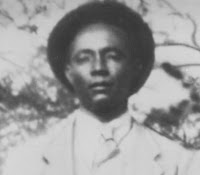Roots of Justice: Mississippi Freedom Summer
In the Summer of 1964 the efforts of poor southern blacks made a difference across the country. Racism in America came to a boiling point. This boiling point was centered around voting rights for African Americans in the State of Mississippi.
Whites in Mississippi controlled the state government and used their political power, wealth, and force to alienate blacks in the community. Almost half of Mississippi's population was balck; but only 5% was registered to vote.
Freedom Summer was a movement to solve this issues by registering the black community to vote. This movement grew larger than Mississippi and affected the whole civil rights movement. Freedom Summer was only possible because of the industrious work of volunteer organizations in Mississippi.
In 1962 Revolutionary organizations like the Student Nonviolent Coordinating Committee (SNCC), Mississippi Freedom Democratic Party (MFDP), the NAACP, and the Southern Christian Leadership Conference (SCLC) began the battle to earn voting rights for blacks in Mississippi. They joined forces in this battle by creating the Council of Federated Organizations (COFO).
Police departments and courthouses across Mississippi were racist. Trials like U.S. v. Cecil Price et al. are perfect examples of this. Defendant Cecil Price was a county sheriff in Mississippi, and an active KKK member. In 1964 he was linked to the murder of three civil rights workers, Andrew Goodman, Michael Schwerner, and James Chaney. Sherif Price and six other defendants were convicted. Price served less than 5 years. Time magazine covered the story and printed this two-page photo of the county sheriff. Corruption, discrimination, racism, and violence were all common techniques of the Mississippi law enforcement.
Follow this bitly link to read more about U.S v. Cecil Price.
The racism in Mississippi, before, and up to 1964 was uncompromising. Whites refused to change their ways, while the majority of the country began to. Salomon writes of a turning point in the battle for civil rights after three major killings captured the outrageous violence tactics used by whites in 1960. The three volunteers; Medgar Evers, Louis Allen, and Herbert Lee, were leaders and unsung heros who lost their lives fighting racism and discrimination. In the wake of the Georgia execution of Troy Davis I thought it would be worth investigating deeper into these murders.
Louis Allen was also a veteran of WWII, after his service he became a logger and civil rights activist in Liberty Mississippi. The Allen murder is a cold case, like many other homicides in Mississippi during the era. Louis was not a trouble maker but he witnessed the murder of Herbert Lee (below) by a powerful Mississippi State representative E. H. Hurst. Mr. Allen said he was threatened into lying about what he saw. Later his moral coumpss directed him to reveal the truth. He approached the FBI and said he lied about the self defense by E. H. Hurst because he feared for his life. After coming forward to the FBI about the Herbert Lee murder, Louis Allen received a lot of backlash in the community and decided to move away from Mississippi. The day before he was planned to move, he was shot in the head outside his home. The lack of a true investigation during the time shows how corrupt and racist the law enforcement was during the era.
Watch the 60 Minute piece on this case.
http://bit.ly/ePrbSB
Here is another blog I found which is based on the 60 Minute piece about Louis Allen.
http://bit.ly/hdc80x

Herbert Lee was the man murdered in front of Louis Allen by a member of the Mississippi State Legislature, E. H. Hurst. This happened on Sept. 25, 1961 in Liberty Mississippi. Hurst was aquitted after witness Louis Allen was pressured to say he saw Hurst attacked by Lee. Hurst never spent a night in jail.
http://bit.ly/rcCUqB
http://bit.ly/p8cvtP
The power of the vote controls our freedoms as Americans. The struggle for voting rights was vitally important to African Americans taking they're destiny into they're own hands. The political environment in which these seeds were planted was one of revolution and change. In some ways it is similar to that of ours today. I think Civil Rights leaders knew this was an opportunity to vault their movement onto a national level and dig up our country's roots of justice.
Excellent! How do you think the movement used racism to battle racism? What were the consequences here in the long-term?
ReplyDeleteHello,
ReplyDeleteMy name is Chris Brusatte, and I am working with the National Civil Rights Museum in Memphis. Do you know the source where you got the photograph of the Freedom Democratic Party convention above? We have been trying to find the original source and/or photographer of this image, but have so far been unsuccessful.
Thanks, and very nice website!
Chris